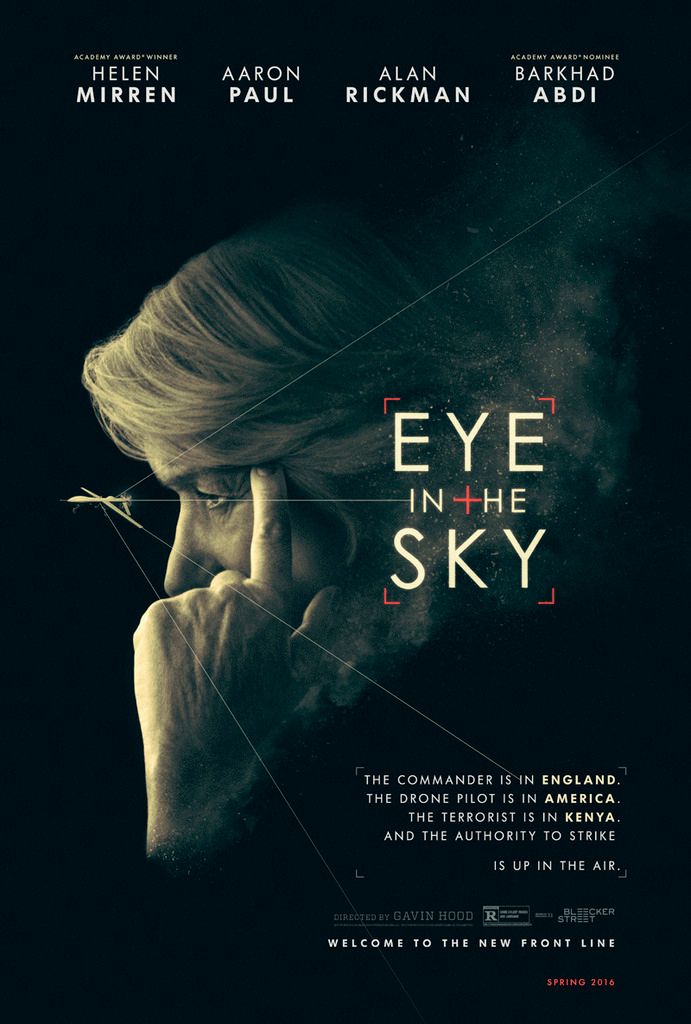The real-time decision-making
process of a targeted drone strike is the controversial topic in director Gavin
Hood’s riveting pseudo military/political thriller ‘Eye in the Sky.’ Told from
a uniquely British point-of-view (with some American non-binding input, since
the drone is operated from Creech AFB) where stringent rules of engagement are being
observed, EITS depicts the difficulties faced by military commanders and
civilian officials alike when authorizing a drone strike in real-time while
also making sure that their asses are covered.
What started out as a routine
Predator surveillance mission to support a snatch-and-grab mission by Kenyan
ground troops gets complicated when the terrorists were observed preparing two
willing martyrs for a suicide bombing. With
time thus “running out,” a snap decision was made to change the mission objective
from “capture” to “kill” since hundreds of lives are now at stake. While the mission commander, a rather cold
and hard-nosed British colonel played by Helen Mirren, her immediate superior
(Alan Rickman in his last role) and the Americans remain undeterred even when a
young girl inadvertently sets up shop right outside the terrorists’ hideout,
the more collateral damage-averse civilian leadership at Whitehall were
subjected to much soul-searching and hand-wringing in the film’s
consensus-by-committee approach.
Whether or not EITS’s portrayal
of drone strikes is realistic in a real world context, one cannot argue that it
is engrossing, suspenseful and utterly thought-provoking. The film essentially poses the question of
who gets to play God in our age of push-button warfare, and forces us to face
the consequences of killing innocents (euphemistically labeled “acceptable
collateral damage”) for the sake of some perceived greater good. They even got it down to percentages. Whatever your views of targeted drone strikes
may be, EITS is a fascinating film that should not be missed.
Grade: A


No comments:
Post a Comment